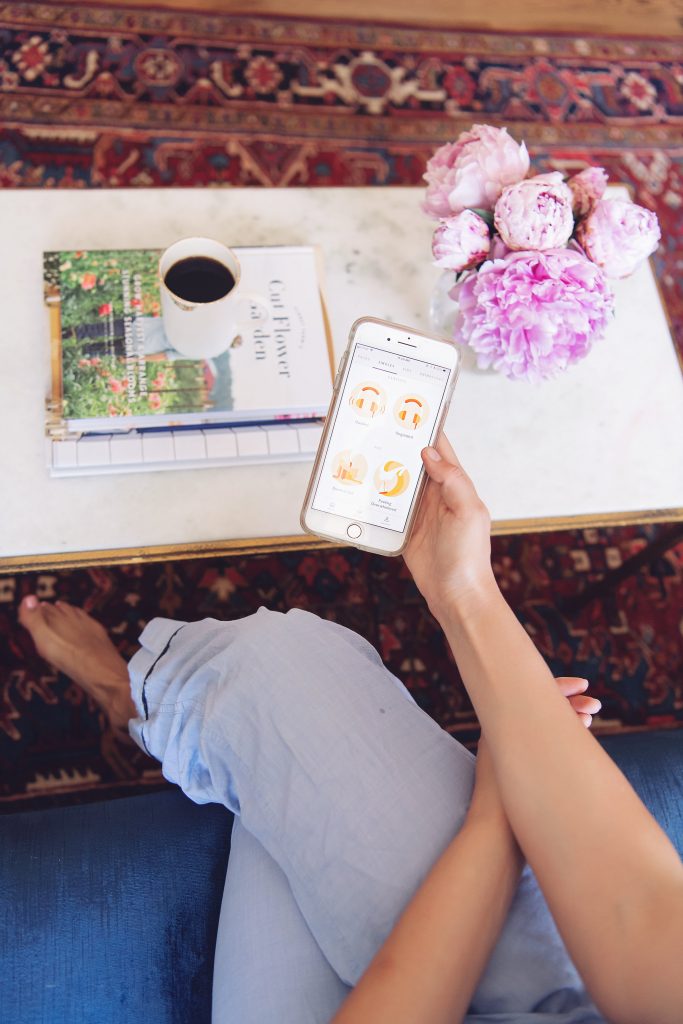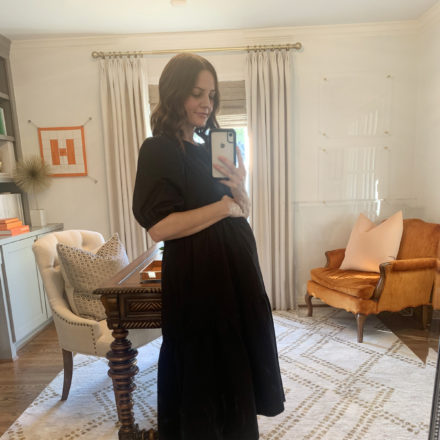
Photo courtesy of Calypso St. Barth
Meditation is a super buzzy wellness topic right now, and we have been very curious to learn more about it. The practice of meditating has been praised by entrepreneurs, athletes, CEOs, health gurus, and everyone in between. Tim Ferris, author of “The 4-hour Workweek,” asked 140 people at the top of their fields the same set of questions for his book “Tribe of Mentors” and noticed one glaring commonality. According to his interview with Business Insider, 90% of the successful individuals he interviewed practiced some sort of morning mindfulness or meditation. Side note, if you’re wondering what the difference is between mindfulness and meditation, goop describes mindfulness as how you take meditation (typically a seated practice) and apply it to everyday life.
It’s easy to feel skeptical of meditation, but it’s difficult to ignore the health benefits that have been praised by so many people. If attending a meditation practice is not in your comfort zone (we get it), the good news is you can use apps like Headspace to test it out at your own pace in the privacy of your own home. We rounded up the 5 health reasons we’ve decided to give meditation a try below — read ahead for the scoop!
Self Care and Awareness
All too often it feels like a rare occasion to find 10-20 minutes during the day to unwind and take care of ourselves. Our days and weeks become a blur of activity, and sometimes we forget to take a breath and see how we’re feeling. Dedicating a window of time each day to sit in silence with our emotions (both good and bad), stress, goals, thoughts, opinions, etc. is a great way to be aware of how we are feeling and then adjust our plans accordingly. Does it feel like there is too much going on? Maybe it would be good to cancel dinner plans. Do you feel disconnected from our spouse? Then maybe a date night is needed. Are you overwhelmed with work or your kids’ schedules? Maybe a personal day or something as simple as a pedicure will help relieve some of the stress. We hope that meditation helps us arrive at some of these conclusions and helps us make healthier decisions as a result.
Decrease Anxiety
Everyone deals with various levels of anxiety throughout their life. Anxiety is essentially long-term stress. The scary thing about anxiety is that it can lead to a slew of other health issues from digestion problems to a weakened immune system, so it’s important to keep it in check. According to this goop article on meditation, research shows that mindfulness is is extremely effective in reducing anxiety. It goes on to explain that meditation, and mindfulness (meditation in everyday life), help people avoid a “stress response,” which in turn will decrease anxiety and help keep our bodies healthy.
Controlling Our Emotions
To quote Tim Ferris, “Meditation, or mindfulness practice, it’s really about…decreasing emotional reactivity so you can proactively create your day and create your life; versus, just being a walking reflex that sometimes screws up.” There are many times when we wish we could have reacted better to a situation; we’re excited to see how meditation helps us process before we act.
Being Present
It seems like almost every New Year we find ourselves making a resolution to be present and enjoy the now. So much easier said than done! The practice of meditating encourages people to really be present and to remove all of the thoughts bouncing around your head to focus on your breath (similar to yoga). The goal is that if we apply this same principle to our everyday life, outside of our meditation room or Headspace app, then it will help us to be present in our activities and interactions with others.
Setting Goals
Do you ever feel like you have so many different goals and ideas in your head but don’t know where to start or what would be best for you? We feel like that often! Our hope is that through meditation, tuning in with how we’re feeling, reducing anxiety, and being present, that we will be able to set clear goals and work towards them. If 10-20 minutes of quiet time a day might help us reach our work and personal goals, then count us in!
Sleeping Better
The goop article notes that 63% of Americans are sleep deprived. Thanks to our phones and constant communication, it’s difficult to disconnect from our work and responsibilities at home. If you find yourself tossing and turning going over your to-do list or your family’s schedule for the week, you’re not alone. According to the article, researchers from Harvard Medical School found that a mindfulness based relaxation technique before bed or during the night if you wake up can induce slow brain wave patterns that can help you fall back asleep.
Have you tried meditating? We’d love to hear about your experience in the comments below!











I have been striving to meditate daily, at least 5-10 minutes, whatever I can fit in. I can’t believe how much more calmed I feel and in control of my emotions. This stuff really works!
Melanie
http://www.lavish-lagniappe.com